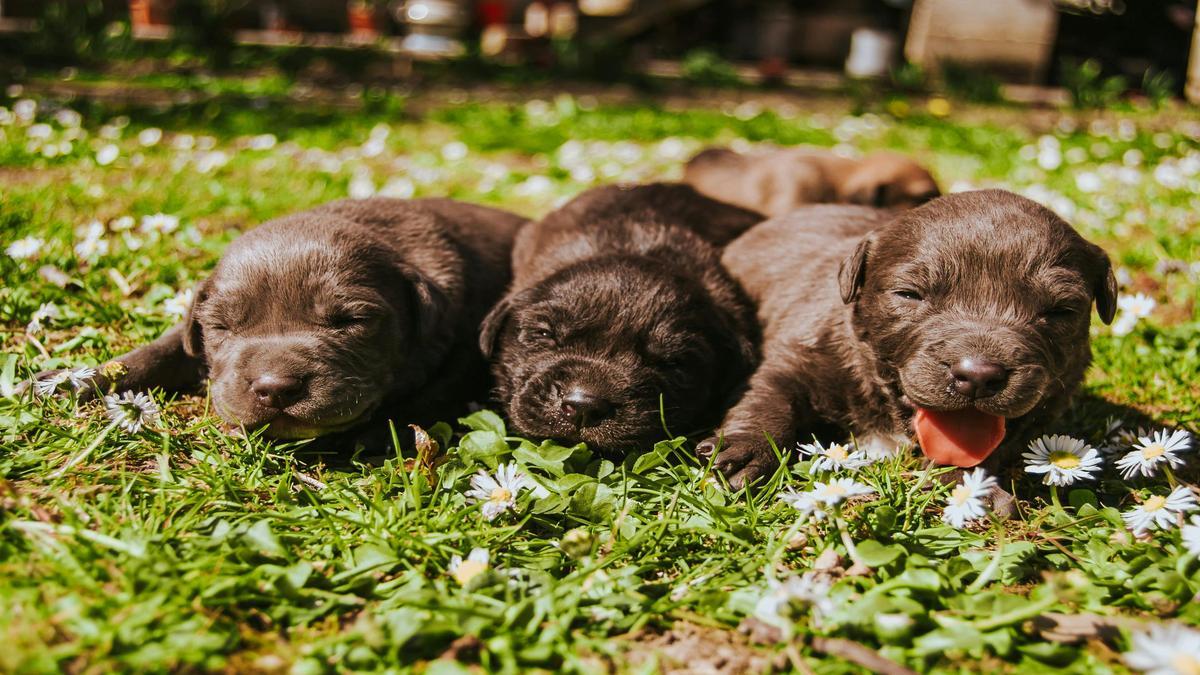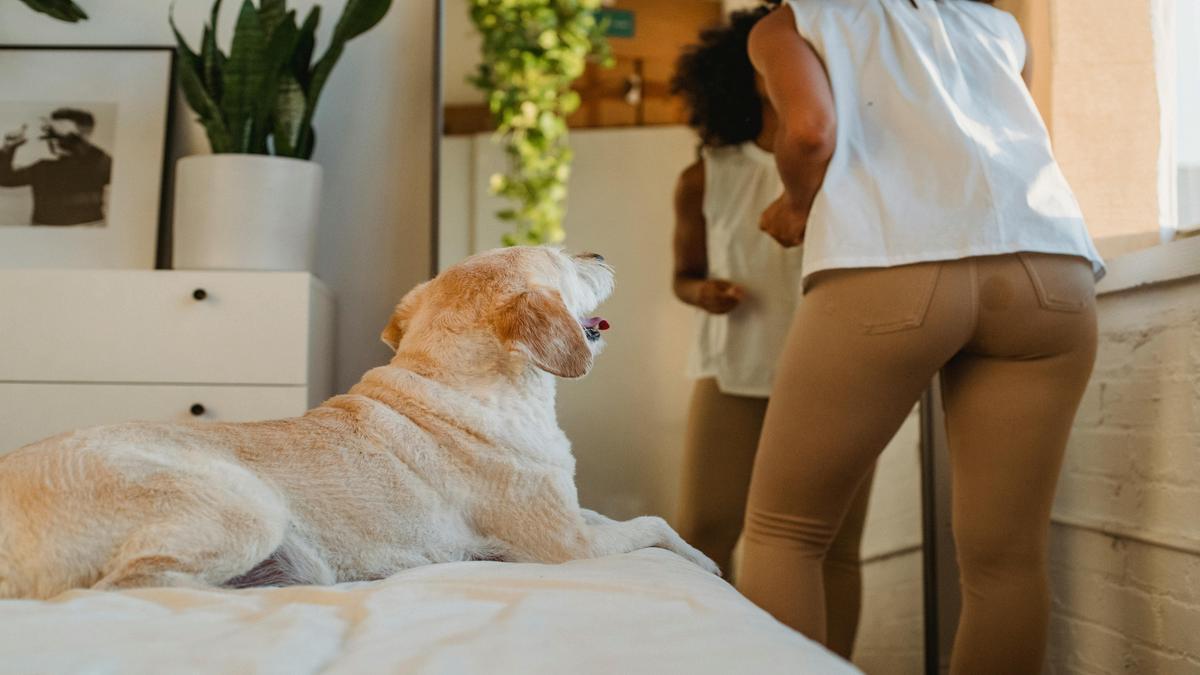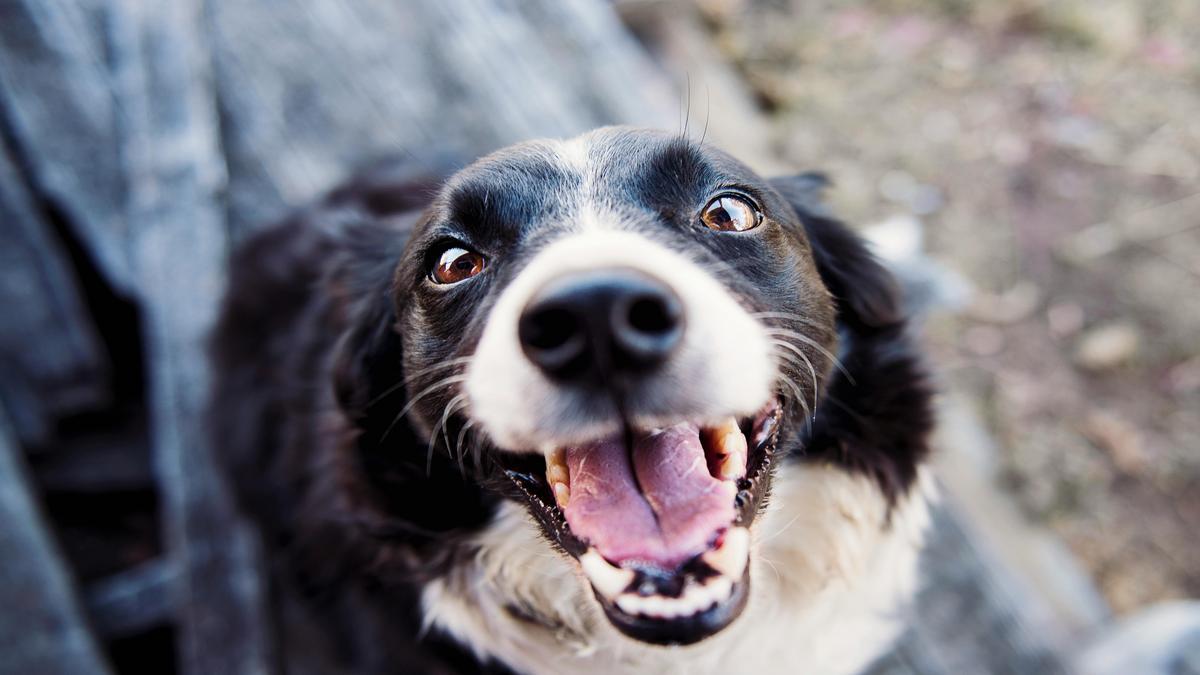Are you noticing your furry friend licking their lips more than usual? In this article, we will delve into the meaning behind lip licking in dogs. From self-soothing behaviors to signs of anxiety and submission, understanding why your dog engages in this behavior can help you provide the necessary support and comfort they need. Let’s explore how you can differentiate between self-soothing and submission, offer tips to help your dog feel more secure, and know when it’s time to seek professional help for your anxious pup.
Key Takeways
- Lip licking in dogs is a common self-soothing behavior.
- It can indicate stress, anxiety, or discomfort.
- Understanding your dog’s body language is crucial in addressing their needs.
- Providing a safe and calm environment can help reduce lip licking behavior.
- Consult a veterinarian or animal behaviorist if lip licking becomes excessive.

The Meaning Behind Lip Licking in Dogs
Lip Licking as a Self-Soothing Behavior
When your furry friend engages in lip licking, it can often be a way for them to self-soothe in various situations. Dogs may lick their lips when they are feeling anxious, stressed, or even excited. Understanding this behavior can help you better support your canine companion in times of need.
Recognizing signs of anxiety in your furry friend can help you provide the support and comfort they need to feel safe and secure.
Lip Licking as a Sign of Anxiety
Lip licking can also be a clear indicator of anxiety in dogs. If you notice your dog excessively licking their lips, especially in combination with other signs of stress, it may be time to address the underlying cause of their anxiety. Dogs can experience anxiety due to various reasons, such as loud noises, unfamiliar environments, separation from their owners, or even underlying health issues.
To help your dog cope with their anxiety, it’s essential to create a safe and calming environment for them. Here are some tips to help you support your furry friend:
- Provide a Safe Space: Create a designated area where your dog feels safe and secure, such as a cozy corner with their favorite toys and blankets.
- Regular Exercise: Physical activity can help reduce stress and anxiety in dogs. Make sure your furry friend gets enough exercise to keep them mentally and physically stimulated.
- Calming Techniques: Consider using calming aids such as pheromone diffusers, calming music, or pressure wraps to help your dog relax.
- Consult a Professional: If your dog’s anxiety persists, consult a veterinarian or a professional dog behaviorist for tailored advice and support.
By recognizing the signs of anxiety in your furry friend and taking proactive steps to address them, you can help your dog feel more at ease and secure in their environment.
How to Differentiate Between Self-Soothing and Submission
Self-Soothing Lip Licking Behaviors
When your furry friend starts licking their lips, it’s essential to pay attention to the context. Lip licking can be a way for dogs to self-soothe in stressful situations. By understanding this behavior, you can better support your canine companion. Here are some common scenarios where lip licking may indicate self-soothing:
- During Thunderstorms: If your dog is afraid of thunderstorms, you may notice them licking their lips as a way to calm themselves down.
- Visits to the Vet: Many dogs feel anxious at the vet’s office. Lip licking can be a sign that your dog is trying to cope with the stress.
- Meeting New People or Animals: When faced with unfamiliar situations, some dogs may resort to lip licking to ease their nerves.
Lip Licking as a Sign of Submission
On the other hand, lip licking can also be a behavior associated with submission. In the dog world, submission is a way for dogs to communicate that they are not a threat. Here are some situations where lip licking may indicate submission:
- Approaching an Aggressive Dog: If your dog encounters a more dominant or aggressive dog, they may lick their lips to show submissiveness.
- Being Scolded: When you reprimand your dog for inappropriate behavior, they may lick their lips as a way to appease you and show that they acknowledge your authority.
- Meeting a New Pack Member: In a multi-dog household, lip licking can be a way for dogs to establish hierarchy and avoid conflict.
Understanding the context in which your dog licks its lips can help you respond appropriately and strengthen your bond with your pet. By observing your dog’s body language and the environmental cues, you can decipher whether they are self-soothing or displaying submission.

Tips for Helping Your Dog Feel More Secure
Creating a Calming Environment for Your Dog
- Provide a Safe Space: Dogs appreciate having a designated area where they can feel secure. This can be a crate, a bed, or a quiet corner of the house.
- Use Comforting Scents: Lavender and chamomile scents can have a calming effect on dogs. Consider using aromatherapy or calming pheromone diffusers in your home.
- Maintain a Routine: Dogs thrive on predictability. Establish a consistent schedule for feeding, exercise, and playtime.
- Limit Exposure to Stressful Situations: Avoid loud noises, chaotic environments, or conflict around your dog. Create a peaceful atmosphere for them to relax in.
Building Trust with Your Canine Companion
- Be Consistent: Consistency in your commands, reactions, and routines helps build trust with your dog.
- Use Positive Reinforcement: Reward good behavior with treats, praise, and affection. Positive reinforcement helps strengthen your bond with your canine companion.
- Communicate Clearly: Dogs rely on body language and tone of voice to understand you. Be clear and consistent in your communication.
- Provide Physical Affection: Petting, cuddling, and playing with your dog can help them feel loved and secure.
By establishing a safe and nurturing environment, you can help reduce your dog’s anxiety and promote feelings of security and well-being.
When it comes to your furry friend, creating a sense of security is vital for their well-being. By navigating the complexities of dog behavior and tailoring your approach towards building trust, you can unveil the secrets to a happy and secure canine companion.
Lip Licking: Self-Soothing, Anxiety, or Submission
If you’ve ever noticed your dog engaging in lip licking, you may wonder what it means. Dogs use lip licking as a way to self-soothe, alleviate anxiety, or show submission. Understanding the reason behind this behavior can help you better support your canine companion.
Self-Soothing
- Lip licking can be a self-soothing mechanism for dogs in stressful situations.
- Dogs may lick their lips when they feel anxious, nervous, or overwhelmed.
- Providing a calm environment and comforting your dog can help reduce their stress and anxiety.
Anxiety
- Excessive lip licking can be a sign of anxiety in dogs.
- Identify the triggers that cause anxiety in your dog and address them appropriately.
- Consult with a veterinarian or professional trainer for additional support.
Submission
- Lip licking can also be a way for dogs to show submission to humans or other animals.
- Encourage positive interactions with your dog to build trust and confidence.
Seeking Professional Help for Your Anxious Dog
Consulting with a Veterinarian or Animal Behaviorist
When your furry friend is struggling with anxiety, seeking professional help is the first step towards helping them lead a happier and more relaxed life. Consulting with a veterinarian or animal behaviorist can provide you with insights and strategies to address your dog’s anxiety. Here are some key points to consider when seeking professional help for your anxious dog:
| Veterinarian | Animal Behaviorist |
|---|---|
| Trained in medical care for animals | Specializes in animal behavior |
| Can diagnose medical conditions contributing to anxiety | Focuses on modifying behavior through training |
| Prescribes medication if necessary | Provides behavior modification techniques |
| Offers a holistic approach to your dog’s well-being | Helps you understand your dog’s emotional needs |
Exploring Training and Therapy Options
Exploring training and therapy options can help your anxious dog navigate their emotions and behaviors more effectively. Professional guidance can offer valuable insights and strategies to address your dog’s anxiety and improve their overall quality of life. Here are some options to consider:
| Training | Therapy |
|---|---|
| Obedience training to build confidence | Cognitive behavioral therapy for dogs |
| Desensitization and counterconditioning techniques | Relaxation techniques such as massage or aromatherapy |
| Engaging in interactive play to reduce stress | Creating a safe space for your dog to retreat to |
| Implementing a consistent routine | Using calming pheromone products |
Professional guidance can provide you with a tailored approach to help your dog overcome their anxiety and build resilience. By working closely with a veterinarian or animal behaviorist, you can unlock the secrets to understanding your canine companion’s behavior and emotions.
Frequently asked questions
Why do dogs lick their lips excessively?
Dogs often lick their lips as a self-soothing behavior in response to anxiety or stress. This can help them calm themselves down in various situations.
Is lip licking a sign of submission in dogs?
Yes, lip licking can also be a sign of submission in dogs. When a dog feels intimidated or is trying to avoid confrontation, they may lick their lips as a way to communicate their submissiveness.
How can I help my dog if they are constantly licking their lips?
If your dog is constantly licking their lips, try to identify the underlying cause of their anxiety or stress. Providing a safe and comfortable environment, regular exercise, and positive reinforcement training can help alleviate their anxiety and reduce lip licking behavior.
What are some other signs of anxiety in dogs besides lip licking?
Aside from lip licking, signs of anxiety in dogs can include panting, pacing, yawning, trembling, excessive barking or whining, and destructive behavior. It’s important to pay attention to your dog’s body language to understand their emotional state better.
When should I seek professional help for my dog’s lip licking behavior?
If your dog’s lip licking behavior is excessive, persistent, or accompanied by other concerning symptoms such as loss of appetite, aggression, or depression, it’s best to consult a veterinarian or a certified dog behaviorist for proper assessment and guidance.

